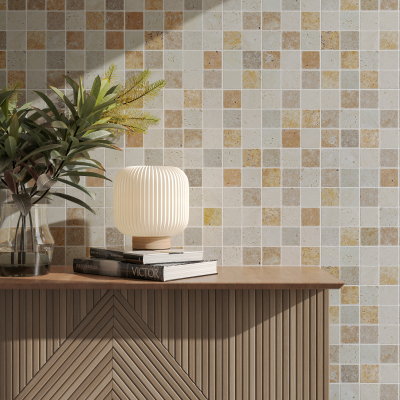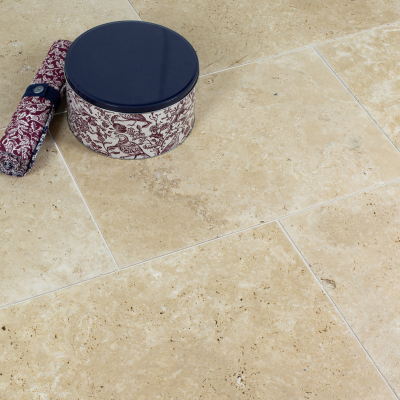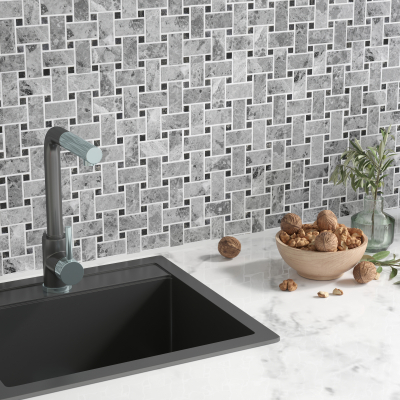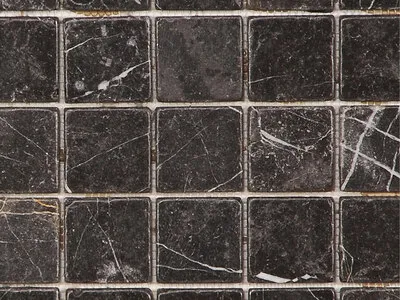Natural Stone Tiles vs. Porcelain Tiles: Advantages and Disadvantages
Natural stones and man-made porcelain tiles, both are attractive and have similarities. Before deciding to invest in your new tiles, we feel it is important to know the differences.
In this blog, we will discuss the advantages and disadvantages of porcelain tiles and natural stone tiles. We will look at durability, longevity and a few other factors. We'll have a comparison in each section and then leave you to decide on which option is best for you.
You need to look beyond just the physical appearance when choosing your new tiles. Many consumers do not know the characteristics of natural stone tiles compared with man-made porcelain. It's not like you can normally find pros and cons list at your local home improvement store so we thought we will help.
Ready to start? Let's go.
Durability
The durability of any new tile is a major consideration for most homeowners, this being especially true for floor installations. As we all naturally would want tiles that can withstand everyday use for a very long time, it's not worth installing new tiles that will only wear out after a few months.
Whilst porcelain tiles may be a deterrent to some consumers, they do have many advantages, like being extremely durable, no worry about tile staining, weakening or becoming water damaged. You can walk on your porcelain floor without causing damage as porcelain tiles are also less likely to be scratched than natural stone tiles. They can withstand daily wear and tear extremely well however, it is still possible to scratch them. Scratches can be caused by slipped furniture or appliances that do not have protective foot paddings. Although even pet scratches are usually not a problem, care should still be taken to prevent damage.
Porcelain tile floors are highly resistant to cracking and chipping, but they are not immune to this damage. Cracks, chips and other damage can be caused by heavy objects falling onto them or heavy furniture being dragged over them. Other than that, man-made porcelain tiles are nearly indestructible from normal daily wear and tear and this is why porcelain tiles can be used in many different ways or areas around your home, giving you that hassle-free easy option.
Now, as you are aware, there are many types of natural stones like limestone, slate, marble, granite, travertine etc. that can be used for many types of household projects but we will not discuss all the different types of natural stones in this blog but rather focus on the common pros and cons of all-natural stones compared to porcelain tiles.
Natural tiles are both attractive and durable, so it's no surprise that more and more homeowners are choosing to invest in them.
The main drawback of natural stones is that they are not very resistant material and are normally quite porous. Yes, sealing natural stones will protect them but sealing is an ongoing maintenance process throughout its lifetime and this alone still will not be a 100% barrier for all things your tiles may become exposed to and therefore, they can stain if not looked after with care. To prolong the life of your natural stones, seal them multiple times before use, maintain them with suitable cleaners and re-seal periodically. Some natural stones are much easier to scratch than others however, nearly all natural stones are much easier to scratch than any man-made porcelain tile.
Lifetime
Most homeowners replace their flooring for the long term, It's the logical thing to do really, as installing new tiles involves a lot of expense and hard work therefore planning your new installation long term and expect it to last you for a very long time is not unreasonable at all.
So how does porcelain tile compare to natural stone in this aspect?
The reality is, however, that most tiles won't last forever. That doesn't necessarily mean they won't last a lifetime.
Porcelain tiles are one of the toughest types of man-made household material. High-quality porcelain tiles have a lifespan of approximately around 75 years if properly cared for.
On the other hand, natural rocks are some of the toughest natural materials to use in your home. Natural tiles can last over 100 years if properly looked after and maintained.
Cost
We understand that some homeowners think the price is the most important factor when buying new tiles. While it's okay to have a budget, you should not base your decision on the price alone. Saving a few pounds now can lead to more headaches and expensive replacements later if you go for the wrong option.
Although porcelain tiles are typically cheaper compared to natural stone tiles, there will be exceptions depending on the specific design i.e anti-slip and availability and therefore you may find that some porcelain tiles do cost more than a comparable natural stone however, we can safely say that as a general rule of thumb, it is harder to find any good grade natural stone cheaper than man-made porcelain tiles.
So, you have chosen and paid for the tiles, there is another important side expense to go along with your choice. This is the cost of hiring a professional to install the tiles of your choice, although you can install porcelain or natural tiles yourself, it's best to hire professionals. If you are inexperienced, it can be very difficult and time-consuming to carry out your own installation but more importantly, your tiles can look and feel very uneven and less appealing, so it is best to trust professionals to carry out the work for you.
Tradesman can provide different installation quotes for the same area to be covered depending on the material they have to work with as this dictates the difficulty in its installation. Porcelain tiles are generally easier and cleaner to work with, whereas more specialist tools are required to work with natural stones as well as the mess they can leave behind.
Installing porcelain tiles can easily cost half the price of installing natural tiles in some cases.
Colours, Styles & Availability
Before going into detail about the many styles and colours available, it will not be fair to discuss the differences between porcelain tiles and natural stones as natural colours and tones of natural stones can never be perfectly imitated by the man-made porcelain tiles (although we now are getting more om more manufacturers producing 30+ faces for their range of porcelain tiles to help make overall appearance of installations look more natural)
Cleaning & Maintenance
Not everyone enjoys cleaning and most people rather choose to spend their time doing other things than spending hours cleaning and maintaining their tiles so what type of tiles are best for you if you are a low maintenance person.
Although it is not difficult to clean your natural stone tiles daily by simply using a mop and warm water, vacuum, or broom to clean simple surface dirt and dust from floors, just like porcelain. When you need to deep clean a natural stone, this is when it can be a bit of a problem. Because natural stones are all porous to a degree, a suitable cleaner has to be researched for the type of stone you have installed as one good cleaner for one type of stone can end up damaging another type of natural stone, we always recommend you avoid using harsh chemicals like bleach and only use the recommended cleaners for your specific stone to avoid damaging them.
Porcelain tiles are the clear winner here as they are much easier to clean. For daily cleaning, you can simply sweep with a broom or use a tile mop and water. Although you can use special porcelain tile cleaners, most people prefer vinegar and water. Rinse off and you can go about your business.
Which is better: natural stones or porcelain tiles?
With porcelain tiles, you will be able to see all the available selections to choose from. You can choose between matt or polished tiles with all the unique designs or textured tiles with all being available with many faces within a batch which can resemble the look of natural stones such as travertine, marble, limestone and granite. You can even get porcelain tiles that look like natural hardwood floors. You can choose from a range of colours. Porcelain tiles are also available across a wide range of suppliers and can be available as long as the production is continued by the manufacturers.
Natural tiles are available in polished, matte honed finish, riven or the tumbled natural finish. Natural stone can also come in all the colours that natural earth can provide us with however, colours available will determine what type of rock you are opting to go for which will determine installation, maintenance costs as well as durability and suitability of use. There can be dramatic differences between each batch as this means they are from a different area of land and availability is dependent on the size of a quarry, however, the most popular types of stones like marble, travertine, limestone etc look like they will be available for may many decades to come and the virality in the natural stone is actually what most of their fans desire.
Final Verdict
Porcelain tiles and natural stones can be used in any home. To help you narrow down your choices, think about what you want carefully.
Yes, porcelain tiles may look monotone in places with repetitive patterns and hardly any character but if you want easier installation, less maintenance, durability and generally more affordable tiles, then porcelain tiles are the one for you.
Yes, natural stone tiles are harder to install, maintain and overall the more expensive option usually but if you want tiles that will have that natural look and feel as well as last you around a century with good maintenance whilst adding character and even value to your property, then the natural stone option is the clear winner for you.
We hope we have given you the necessary crums of information to help you decide on your next tiles.
Please check out our listings for all the options we have available for you with whatever option you wish to go for.
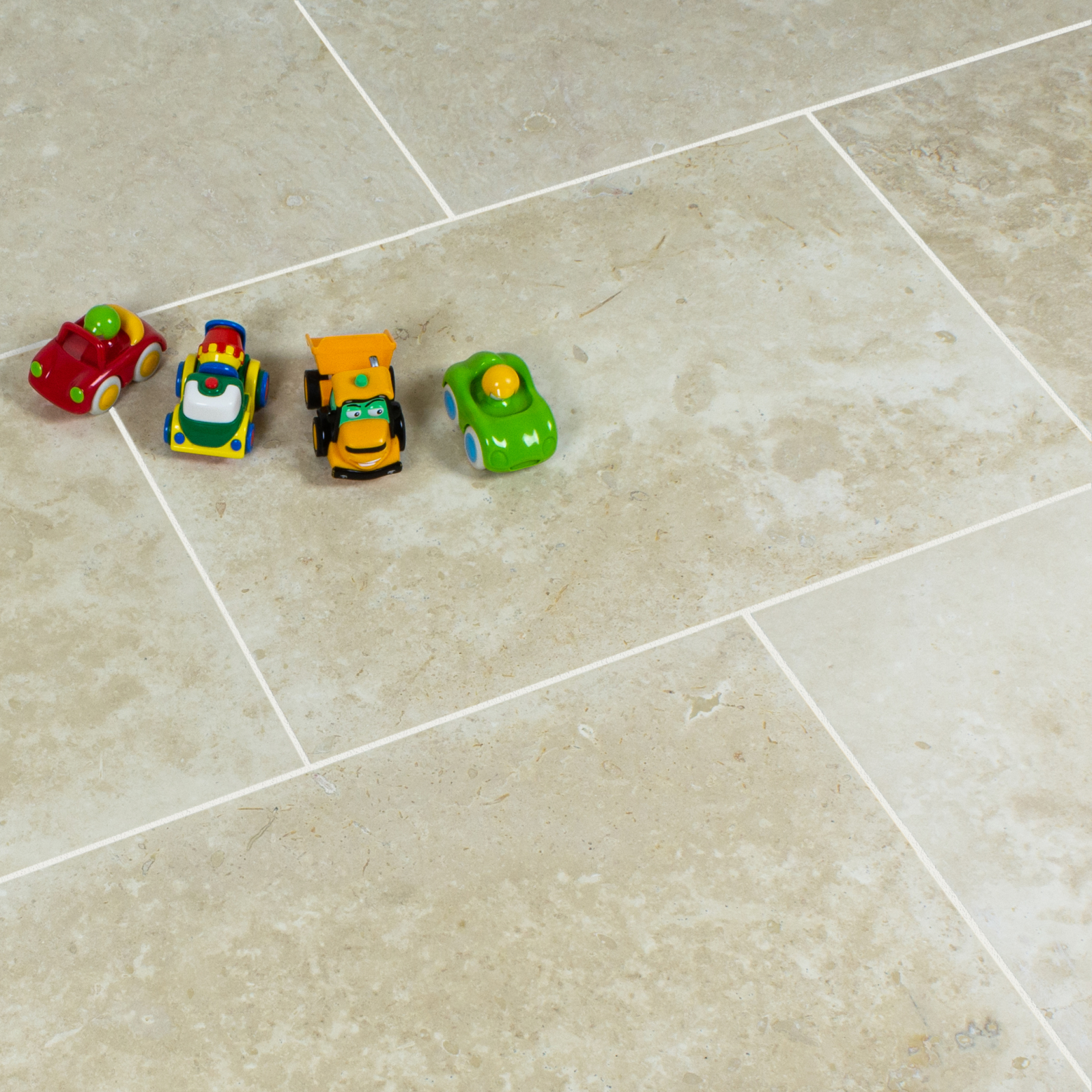
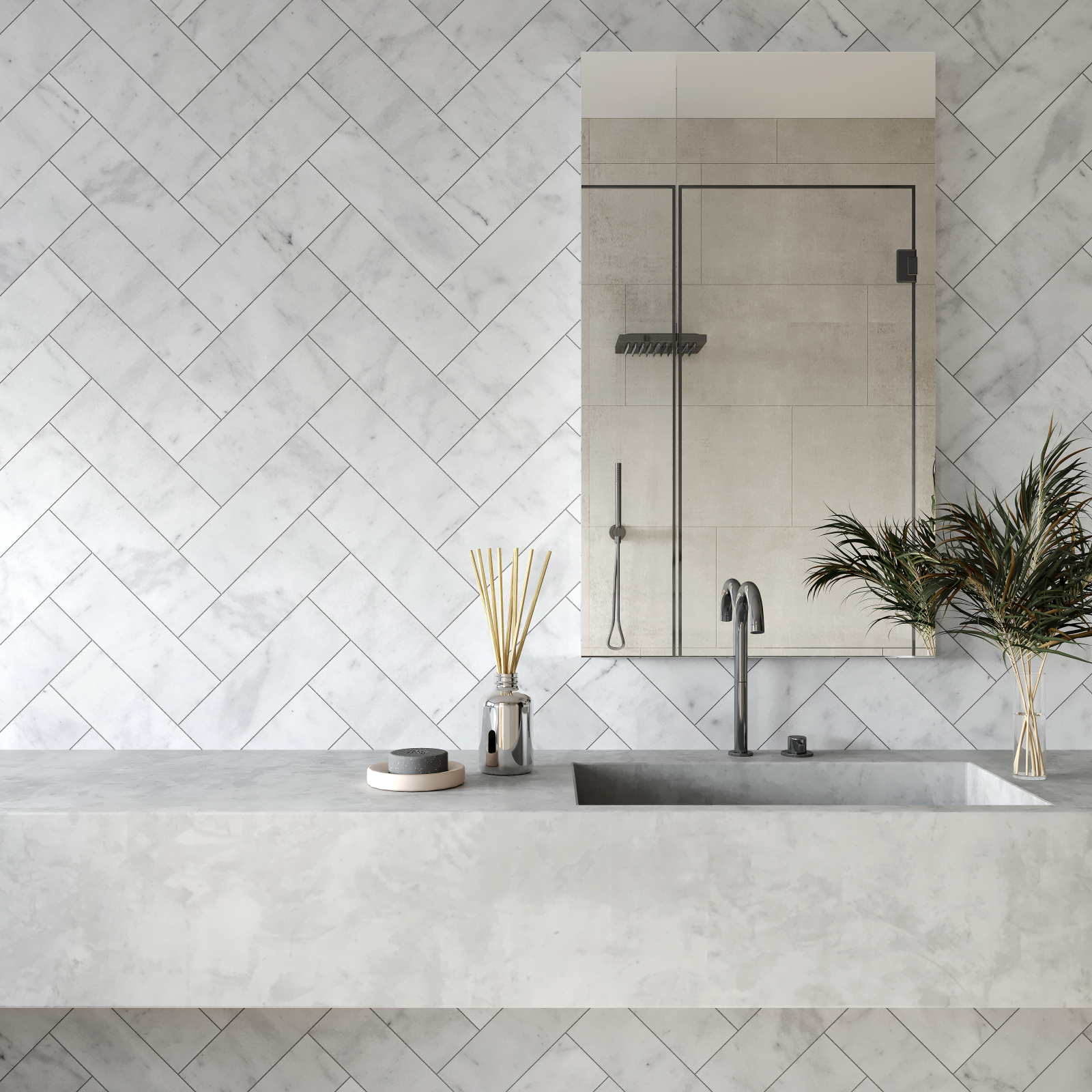
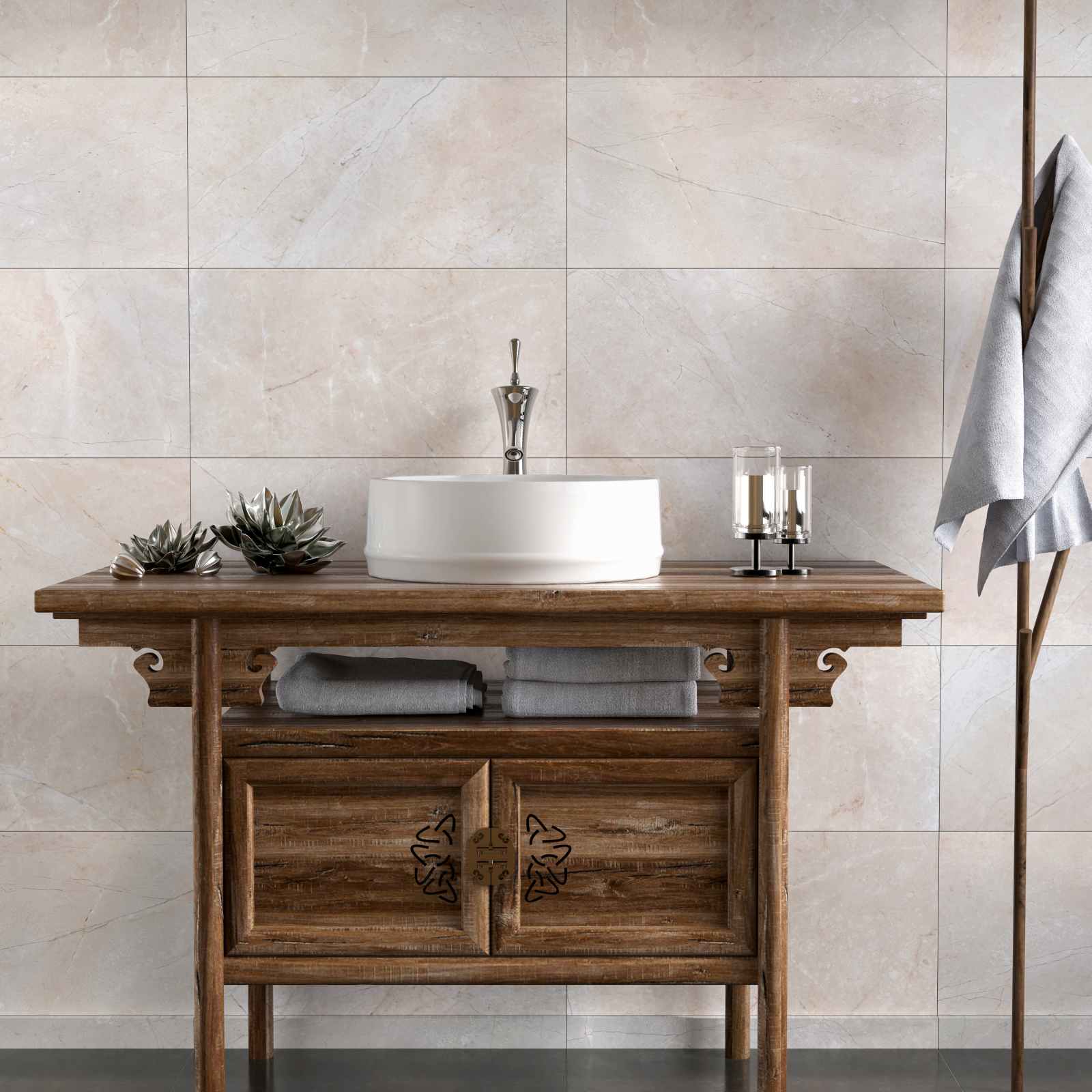
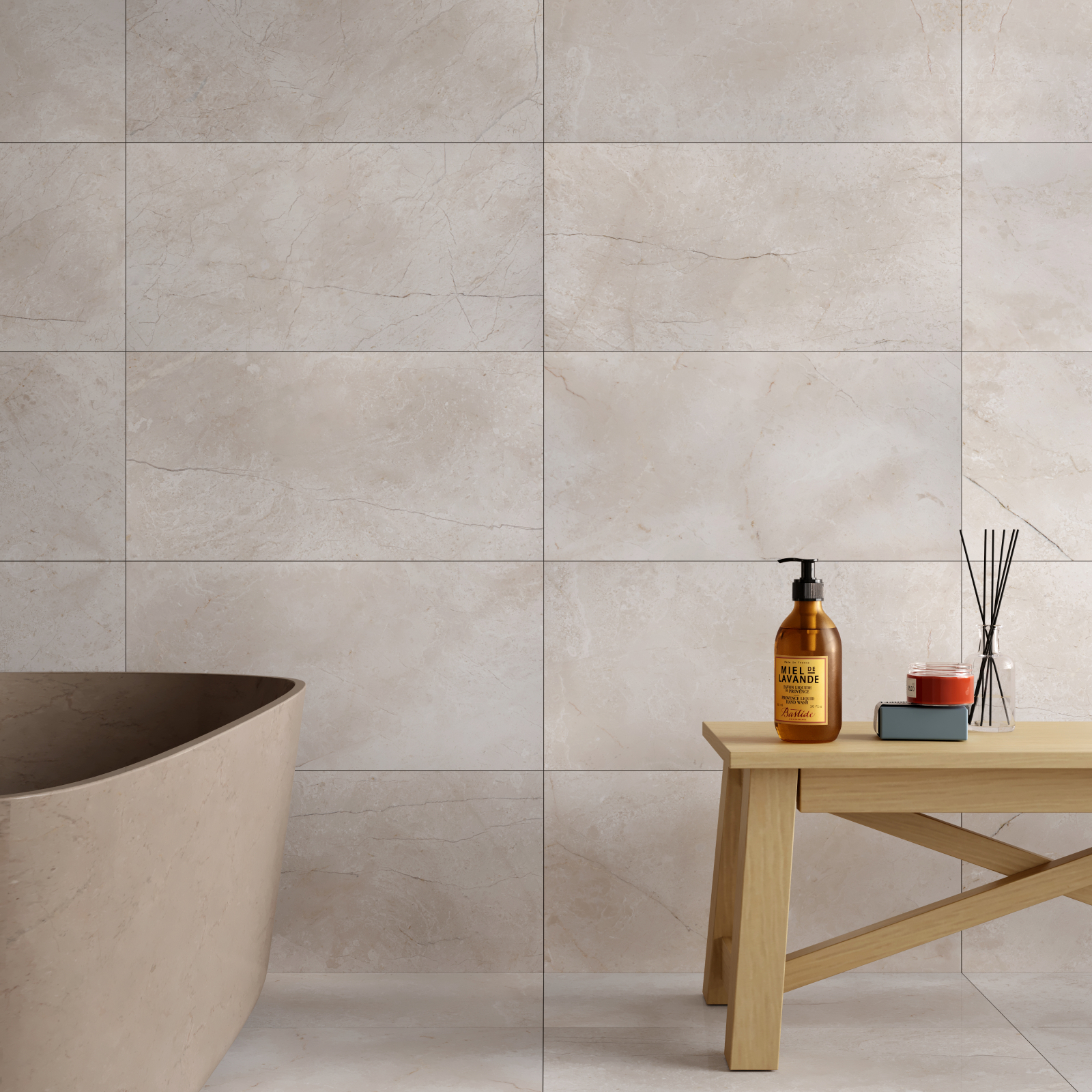
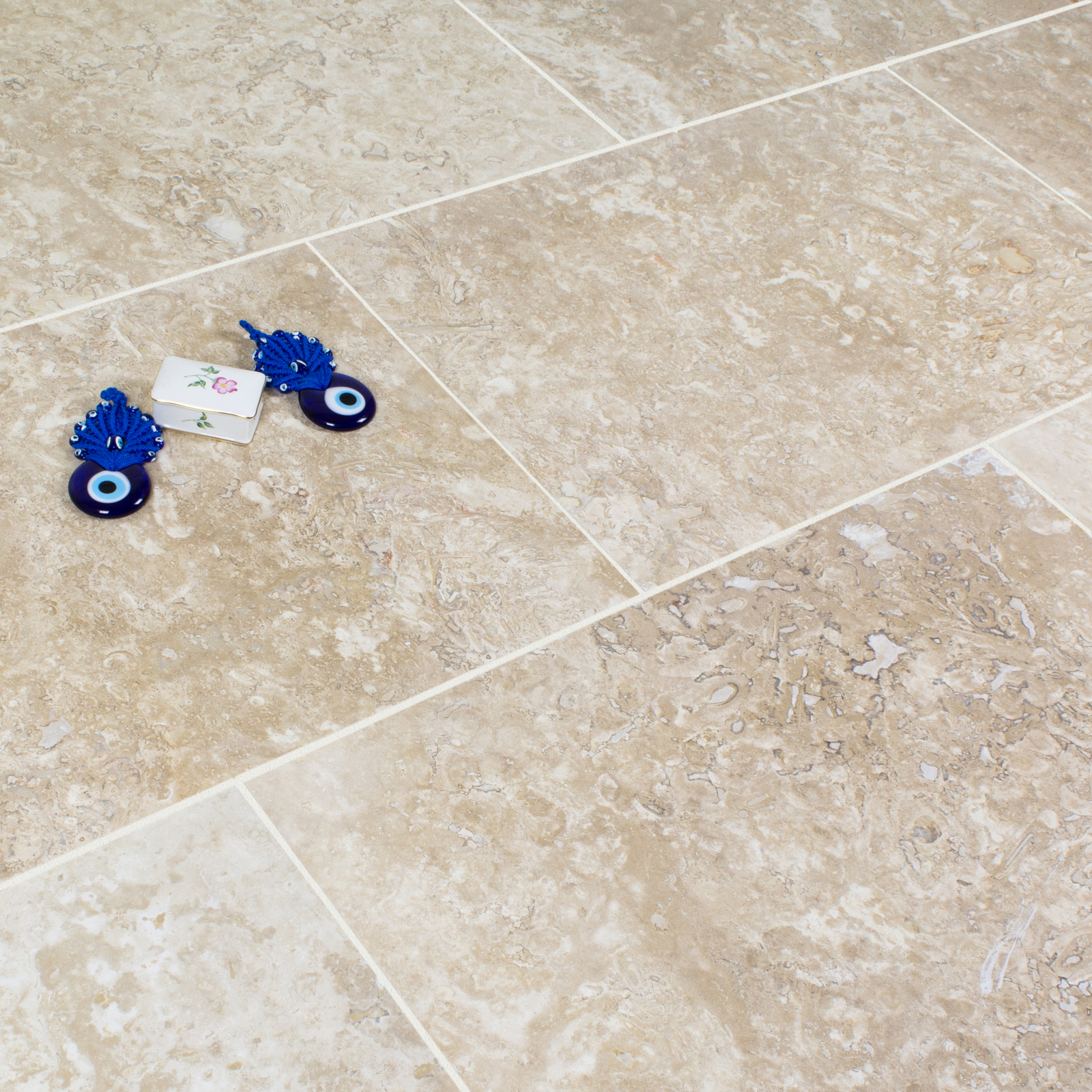
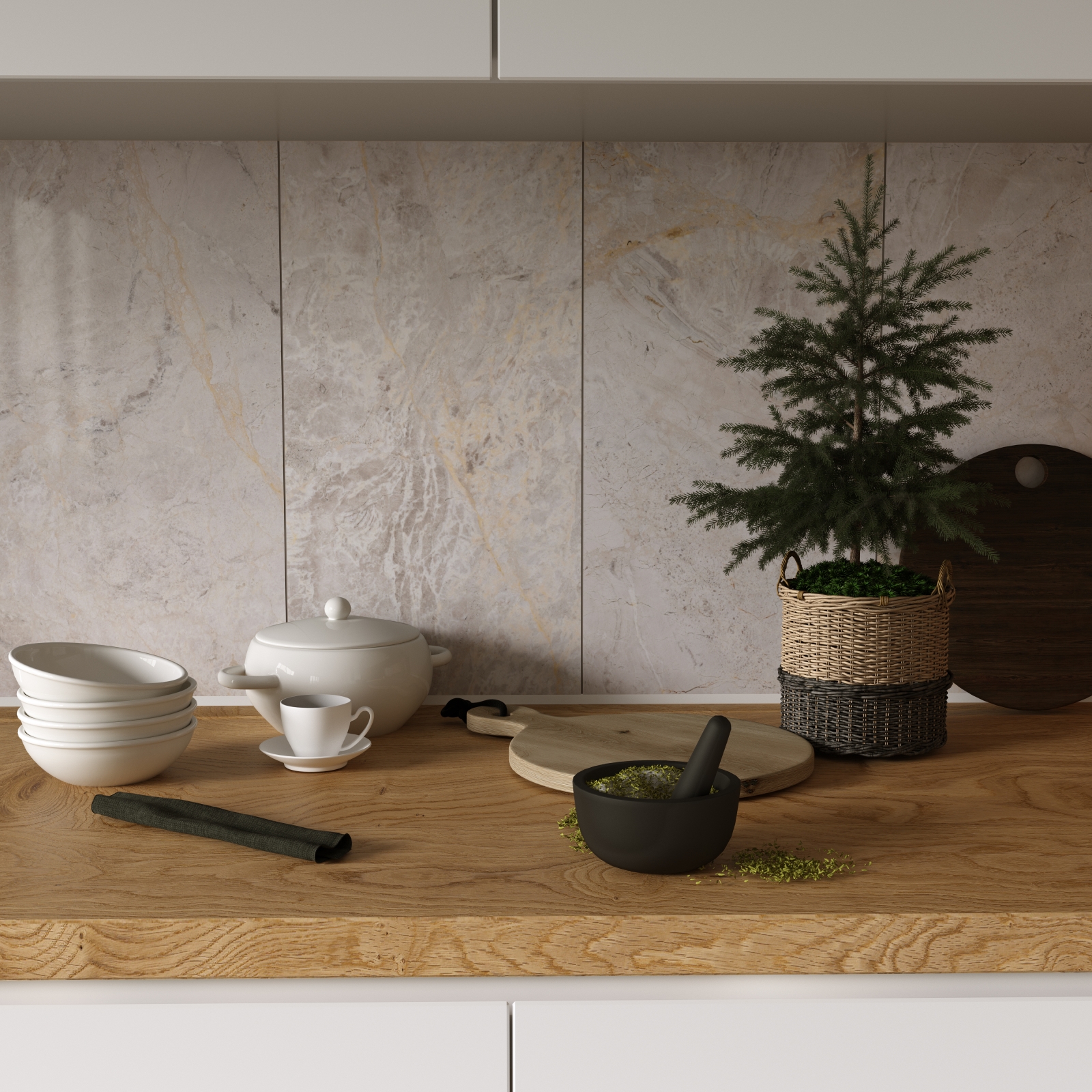
 REVIEWS
REVIEWS
